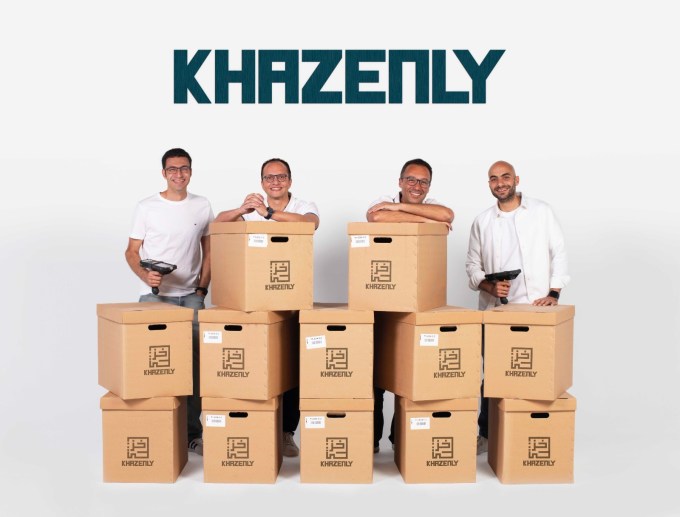On April 4, the U.K.’s development finance institution, Commonwealth Development Corporation (CDC) Group, formally changed its name to British International Investment.
As part of the name change, the development finance institution (DFI) announced that it surpassed its pledge to invest £2 billion in Africa over the last two years. It was a reminder of the series of work BII had accomplished on the continent leading to this point: over 600 portfolio businesses with a value of $4.2 billion. Nigeria is its biggest investment market in Africa, with a portfolio of $570 million.
Within this period, the impact investor backed several firms in various sectors like banking, trade, private equity, and venture capital. Some deals include $300 million direct equity in DP World, $75 million direct debt in Stanbic IBTC Bank, $100 million in Standard Chartered, a $20 million investment in Verod Cap, and a $15 million investment in the TLcom TIDE Africa Fund.
In a new development, BII said it will invest between £1.5 billion and £2 billion yearly from 2022 and 2026 in “Africa, parts of Asia and the Caribbean.” But narrowing this to just Africa, the impact investor is looking to mobilize $6 billion into the continent across these five years, Benson Adenuga, the firm’s head of office and coverage director for Nigeria, told TechCrunch in an interview.
“We want to do a lot in Africa. Africa is one of the key strategic markets for BII. It has been since inception, as it continues to be even with our current strategy for 2022-2026,” Adenuga said. “The key reason for that is you’ve got over a billion people in Africa, the level of developmental needs across Africa is very significant. We see a very significant role that DFIs like us who have the experience, capital and skill sets to support development can bring to the table.”
BII has adopted a strategy to make calculated, not sporadic, investments across key sectors: infrastructure, financial services, manufacturing, food and agriculture, health, education, and real estate and construction. The strategy is to divide countries into four categories based on market development and specific risk profiles. They include mature, powerhouse, stable and fragile markets. “What we do in each country is a function of where the country stands,” noted the director.
In matured markets such as South Africa, Adenuga said BII will have an on-the-ground presence and offer its full suite of services ranging from climate finance, funding for financial inclusion, and equity and debt financing. BII will have offices in powerhouse markets like Nigeria, Egypt, and Kenya and offer equity and debt financing to projects in these countries. For stable markets such as Ghana, BII will get representative offices that will provide investments with the option to go all in if there are noticeable upsides. And in fragile markets, BII will work through intermediaries and partners to make investments across key sectors on its behalf.
“We offer these across the countries and deploy using various instruments, ranging from equity to debt and everything in between. That is how we tend to approach Africa.”
Progress so far: banks, VC firms and startups
Around 57% of the African population have little or no access to financial services. And one primary goal of the BII’s involvement and investments in Africa is to bring more people into the financial stratosphere. In its dealings so far, the impact investor is not only constructing avenues to increase financial inclusion but also increasing opportunities for women because they tend to be more financially excluded than men.
In February, FirstBank, one of Nigeria’s largest banking groups, received a $100 million credit facility from the impact invest to lend to small and medium businesses in the country. Adenuga said 30% of that money is earmarked specifically to women-owned and led SMEs.
BII has also provided investment to TLcom Capital, one of the largest pan-African venture capital firms. This January, TLcom reached the first close of its $150 million second fund; BII contributed $10 million of that money. This investment follows the impact investor’s $15 million commitment to TLcom Capital’s first fund of $71 million.
TLcom Capital is just one of the many firms where BII is a limited partner. It has put money into VC and PE firms like Sawari Ventures, AfricInvest, Novastar Ventures, Verod Capital and Ezdehar Management.
Investing in startups through these firms made sense for BII, considering it isn’t traditionally structured to take on early-stage risk by partaking directly. However, it becomes hard to ignore some of these businesses as they enter growth-stage phases and need more capital–most times beyond what venture capital firms can provide–to scale. BII has upped its game by investing directly in such businesses.
“We have operated as a growth capital company, with at least $10 million of investment and higher. There are several innovative businesses in early stages that we could not support before,” said Adenuga. “But we see a market gap when it comes to startups with a proven concept, a product on the market that is acceptable and needs more capital; we then come in and co-invest with our fund managers directly in the businesses.”
An example is its investment in B2B e-commerce platform TradeDepot. In previous rounds, BII had invested indirectly through Novastar Ventures as a limited partner, but in the TradeDepot’s Series B round, BII invested $5 million directly with Novastar on the startup’s table too.
BII and Novastar Ventures also backed TeamApt, a Nigerian fintech, in its $30 million+ Series B last year. The impact investor invested about $5 million. Other African startups that have received money directly from BII include M-KOPA, Paymob, Apollo Agriculture, and Pylon.
Big plans for climate finance
This week, BII announced its $20 million investment in Moove, a mobility fintech democratizing access to vehicle ownership in Africa. The company provides revenue-based vehicle financing and financial services to Uber drivers. However, unlike the other equity rounds, the Moove deal is a 4-year structured credit investment. BII said the funding will enable Moove to purchase and import brand new “fuel-efficient cars” into Lagos, which will be leased to drivers who can earn their way to asset-ownership over three to four years.
In an interview with TechCrunch, Moove co-CEO Ladi Delano said at least 60% of the vehicles the company finances will be electric or hybrid in the coming years. This grand plan of a company that has raised over $200 million in equity and debt fits well with BII’s climate finance objectives. It is one reason the impact investor is interested in the mobility company, according to Adenuga.
He said over the next five years, at least 30% of BII’s total new commitments by value will be in climate finance. It is the first time BII is making clear, explicit targets for climate finance, a development that will make it one of Africa’s world’s largest climate investors.
Last week, BII, which has offices in numerous African countries, announced plans to invest up to $200 million in hydropower projects across the continent alongside Norfund and Scatec. It follows other climate-focused projects BII has been involved with, such as New Forests and Energy Access Relief Fund–and smaller commercial ones like Lumos and Greenlight Planet.
“What we’re looking to do is to invest in businesses that lead to a reduction in emission, that support adaptation and resilience, and also help businesses to be able to adapt to the impact of climate finance,” the director said. “When we talk about climate finance, people tend to think about just investing in solar panels and renewable energy; it is that and much more. For example, climate-smart agriculture and green buildings are something that we will look at. In mobility, things like electric vehicles, converting from diesel to CNG, or clean-energy vehicles–those are some things that we will support as well. So it’s a comprehensive set of investments that we will try to do, which is quite critical for us.”




